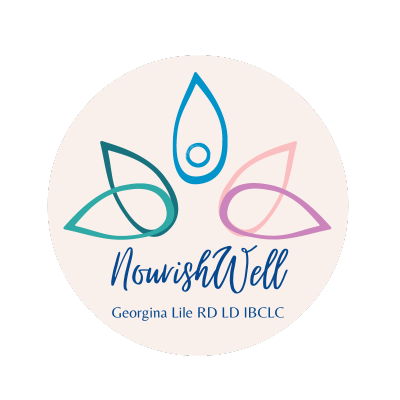How Can an IBCLC Assist with Tongue Tie in the Breastfeeding Infant?
Almost all infants are born with lingual frenulums (a fold of mucous membrane under the base of the tongue that helps to anchor the tongue in the mouth). Frenulum thickness, elasticity and where it is attached to the tongue and base of mouth can impact tongue function. Tongue-tie (ankyloglossia) is a condition in which the frenulum restricts the tongue’s range of motion. It may interfere with breastfeeding and affect a child’s ability to eat solids, speak and swallow. Sometimes a frenulum that looks like a tongue-tie may function normally and not cause problems. Some cases may require a simple surgical procedure for correction called a frenectomy.
Sometimes a tongue tie can reduce milk transfer and cause painful breastfeeding. Here are some of the signs your baby may have a tongue tie that is impacting breastfeeding:
Shallow or No Latch
Nipple Pain
Compressed/creased nipples
Lipstick shaped nipples
Clicking or smacking sounds
Clamping
Lips Curl Under
Spilling or Leaking Milk
Plugged Ducts
Nipple Bleb
Poor Supply
Poor Weight Gain
Poor milk transfer
Cannot hold pacifier
Dimpling in cheeks while nursing
Noisy breathing while feeding
Reflux
Colic Symptoms
Frequent Hiccoughs
If you suspect there is a problem, consult with an Internationally Board Certified Lactation Consultant. Many IBCLC’s are trained to assess a baby’s oral structure and function. We cannot diagnose a tongue tie but we can perform a digital screening with a gloved finger to assess your baby’s tongue function and whether or not interventions may be needed. I use Alison Hazelbaker’s Assessment Tool for Lingual Frenulum Function. This is the most reliable and accurate screening tool available to assess oral function.
After a screening, breastfeeding observation, and discussion of breastfeeding history, an IBCLC can develop a care plan with you. They can inform you of all of your options and give you referrals to frenectomy providers you may choose from. If a revision is likely to improve problems and you choose to have a revision, your IBCLC can give you guidance on what to expect after procedures and assist in before and after care including sucking exercises that may help improve tongue function and wound healing.
In some instances, parents choose not to have a revision even when a revision is likely to improve sucking skills and breastfeeding problems. Your IBCLC should support you in your decision and show you strategies to improve latch as much as possible with positioning. Your IBCLC can also teach you sucking exercises that may improve sucking skills and latch over time.
In some cases muscle tightness can be responsible for poor tongue mobility. Torticollis can cause problems with sucking and breastfeeding as well. During a full breastfeeding assessment, your IBCLC should look for signs of muscle tension as well. Your IBCLC can teach you sucking exercises, basic stretches and other strategies that may improve problems with breastfeeding due to muscle tension and give you referrals for therapy providers.
Regardless of findings, a good care plan should include strategies to improve breastfeeding, referrals and changes to watch for. Your care plan should be a guide to help you achieve your breastfeeding goals. If something in your care plan is not working, your IBCLC will work with you to make changes that work better for you. You are in charge and this is your breastfeeding journey. Your IBCLC is just there to help guide you through your journey.
If you suspect that a tongue tie is impacting breastfeeding, contact Georgina Lile, RD, LD, IBCLC for a lingual frenulum screening and breastfeeding assessment.
GEORGINA LILE IS AN IN-NETWORK PROVIDER FOR AETNA
Many Aetna plans cover up to 6 visits with a lactation consultant if you need support with breastfeeding or a prenatal breastfeeding class; with no out-of-pocket cost to you.
During the Covid-19 pandemic, Aetna is covering virtual lactation care from an in-network provider like myself at no cost to you.
She also accepts some Blue Cross Blue Shield, Cigna and United Plans through Lactation Network. Coverage varies
